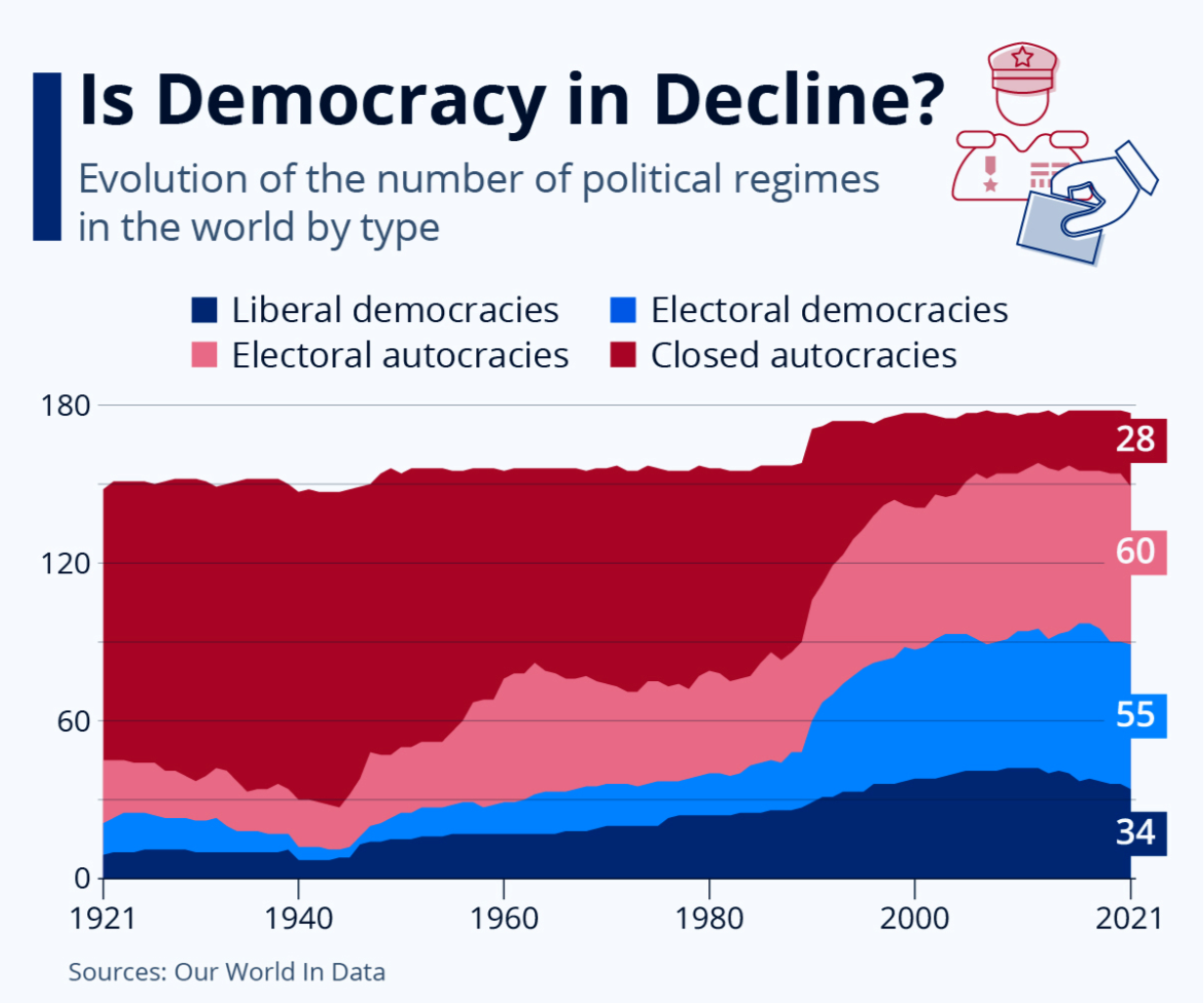In 2024 democracy will be tested like never before. More than half the world’s population is going into their national elections, which includes, India, the United States of America, European Union, and many other countries in Africa and Asia. The remaining half of the population of the world, like the people of China, Russia, and others, pretty much have no power to exercise free and fair elections.
Going by the political commentaries that we hear so loud and clear, the far right is making progress and might claim victory in major elections, we would have national leaderships spanning from majoritarian populists to fascist dictatorships, and many of our freedoms and institutions would be compromised; the world as we know would change; it will not be the same post 2024. The order of the world as we know since the end of World War II, or in the case of India, from the time of our independence might take a dangerous turn.
Will democracy survive 2024 bumper elections? In spite of having free and fair elections, people still choose candidates with dubious democratic credentials? Perhaps people have other priorities than the priorities laid down by the founding fathers of our nation and constitution.
India, world’s most populous democracy, is electing its 18th Lok Sabha in April or in May. Election times are the most vulnerable times of Indian democracy. In the cutthroat unsparing practices of Indian politics, winning elections is often prioritised over everything else. The fierce competition and the high stakes involved have led politicians to adopt questionable campaign strategies and tactics. Parties resort to manipulation, misinformation, and sometimes even use force to secure victory. The focus on winning has shifted the narrative from serving the public to political opportunism, party switching, and outsmarting the opponents by wooing the voters with money, power, and communal and caste politics.
Disinformation and misinformation are used to polarise communities, sway public opinion, and affect voting patterns. Political polarisation and fueling of religious ideologies and popular emotions can cause division and undermine the inclusive and diverse spirit of the election process.
In the recent case of Chandigarh mayoral election presiding officer tampered with the ballot papers; made the BJP candidate ‘first past the post’, declared the BJP candidate as winner, and he, who is suppose to be neutral and unbiased, shamelessly joined the victory celebrations right there in the election hall with the winners. Thanks to the Supreme Court for doing the needful to restore the sanctity of the election.
‘Politics of distraction’ is the order of the day. In a country of mass illiteracy and unemployment, farmers’ suicide, and farmers’ protest, politicians and other key people divert public attention by discussing worship place destructions and temple constructions, cow protection and mythology, women’s dressing and girls wearing hijab to college. Noam Chomsky, an American social commentator says, “The key element of social control is the strategy of distraction that is to divert public attention from important issues and changes decided by political and economic elites, through the technique of flood or flooding with continuous distractions and insignificant information.”
Animal Farm is a short novel by George Orwell. It is an allegory of Russia in the early 20th century (the USSR), and the leaders on Animal Farm are the leaders of Russia in the beginning of twentieth century. The storyline is simple. The animals stage a rebellion against the farm owner. The animals win power. The pigs position themselves as more powerful than the rest of the animals. The most powerful pigs are Snowball and Napoleon. No one with power likes another having power. Napoleon sees to it that Snowball is taken off the farm by force, so by the time the farm needs to have an elected leader, the animals are left with only one choice.
Animal Farm is an allegory for any society. The easiest people to control are those who think they are free. Napoleon, the leader, brings out several commandments for people of the republic to live by, like, “all are equal, and some are more equal than others.” People live in
the illusion of equality. Big democratic terms are used. People are served with the illusion
of freedom. Leaders call them comrades and friends; the supreme leader lets them elect their president but gives only one choice. Napoleon (acting as a large-hearted democratic man) declares election; but also declares himself
as the only choice (these were days before we had the NOTA option). Napoleon was elected ‘unanimously’. Democracy is an asset only among people with free and informed minds.
Written as TOGETHER editorial.

Comments
Post a Comment